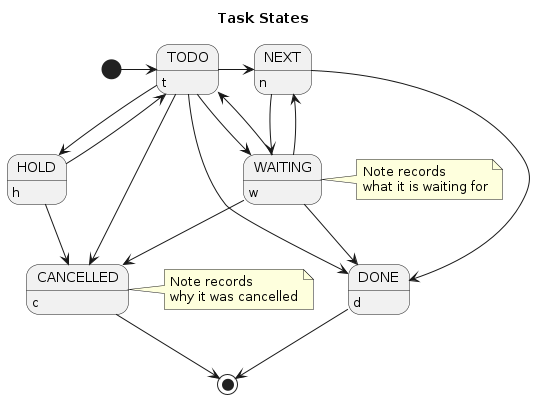132 private links
Timo Zimmermann about software engineering, leading teams, consulting and start ups.
When polarizing topics are discussed in meetings, passions can run high and cloud our judgment. Learn how mental models can help you see clearly from this real-life scenario.
I long ago stopped reading books on note-taking.
They were always too vague and boring, full of platitudes that had little to do with the world outside academia.
I especially avoided “how-to” style books on the subject.
They would often list dozens of tips and tricks that had little to do with each other. There was never an overarching system for turning notes into concrete results.
But recently I picked up How To Take Smart Notes (affiliate link) by Sönke Ahrens. Ahrens is a Lecturer in Philosophy of Education at the University of Duisburg-Essen and also coaches students, academics, and professionals with a focus on time management, decision-making, and personal growth.
Over the past year, I’ve worked on and off documentation for WordPress. I started contributing during a freeze around launch to help developers transition to the new platform. I found writing documentation is something I enjoy, plus rewarding to help and educate people. Though it’s not a primary part of my job, I’ve continued to find time here and there to keep contributing.
In this time, I’ve read various resources on technical writing and documentation. These are my notes, both to help me remember later, but also as a tool to help me think about writing now.
There is often the desire to start "standard" or pre-configured workspaces in tmux.
For example, run tail on two log files in a pane, or to start both vim and mysql in a pane, etc.
If you try to find information about starting tmux workspaces, you typically get advised to use wrapper programs such as tmuxinator, tmux-resurrect, or tmux-continuum. These programs may be great, but the article proposes a simpler approach.
I personally like this approach.
In a world of evolving and targeted cyber threats understanding your attacker’s intentions and tools has never been more crucial. By deliberately maintaining vulnerable systems, or Honey Pots, and letting the attackers in you can analyse their activity and gather intelligence so you can be ahead of the game if you ever have a compromise. When running an SSH Honey Pot you can gain a full log of the commands an attacker attempts to run on your system and any files which they attempt to download and can be a great way to obtain samples of malicious software for analysis or understand the techniques used by an attacker to scour your data.
This article, explains different ways of preventing Git from repeatedly prompting for username and password when interacting with a remote repository over HTTP(S).
The aim of this article is to provide a series of good general advice and considerations on how to design and write libraries, particularly if portability, ease of use and performance are of concern.
The word "game" is in parentheses since most of the advice also applies to non-game libraries.
Open source home automation that puts local control and privacy first.
We are living in a global knowledge economy. People who might never meet face-to-face are working together daily through the internet. Knowledge work is becoming more accessible for people everywhere in the world, and technology talent is no longer exclusive to Silicon Valley.
We created this guide to help more people join the internet economy, and gain flexibility and independence in their work life. This guide is based off of our experience originally as remote workers ourselves, and now as a 100% remote team. This encyclopedia is open source, and we hope that the whole remote community will contribute to make it better over time.
Whether you’re looking for a more flexible way to work as a maker, or to build an amazing remote team - this guide will help you get started, stay productive, and build a better future of work.
A comprehensive description of how I currently use org-mode.

The Pulitzer prizewinner shares his advice for pleasing readers, editors and yourself.
BLUF is a military communications acronym - it stands for “bottom line up front” - that’s designed to enforce speed and clarity in reports and emails.
Da Propp a Campbell-Vogler, passando attraverso le 12 tappe, gli archetipi e i generi letterari.
Is there a way to conveniently define a C-like structure in Python? I'm tired of writing stuff like:
class MyStruct():
def __init__(self, field1, field2, field3):
self.field1 = field1
self.field2 = field2
self.field3 = field3An easier way to build and share serverless applications w/ the Serverless Framework.
Tips for writing effective emails avoiding misunderstandings, with examples from the software development world.
